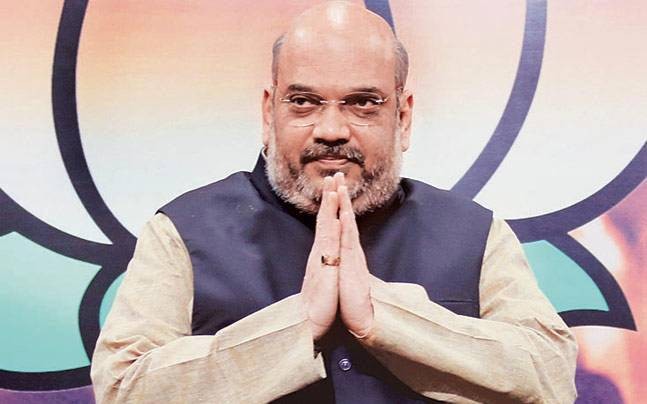
The amount of time that the Bharatiya Janata Party (BJP) president Amit Shah has been spending in Rajasthan over the last few weeks highlights the importance the party is placing on the upcoming assembly elections in the state, which is likely go to the polls along with Madhya Pradesh, Chhattisgarh, Telangana and Mizoram later this year.
Officials familiar with the matter said that while Shah has visited Chhattisgarh four times in the last five months, and Madhya Pradesh three times since June, the BJP president was in Rajasthan five times in September alone, adding that impact of the attention being given to the state is starting to show results on the ground.
Another Shah trip to Bikaner is scheduled for October 4. BJP governments are in power in all three states.
“When you go into an election after being in the government, there’s a challenge of anti-incumbency. The BJP is a cadre-based party and the national president is working with the workers at the grassroots to motivate them,” party spokesperson Satish Poonia said, stressing that Rajasthan is an “important state” for the party.
During his visits to Rajasthan, Shah has spent more time meeting booth-level workers and office-bearers of frontal organisations than with chief minister Vasundhara Raje or senior ministers.
He has also tried to reach out to intellectuals from the state during some of the visits.
The party’s state president Madan Lal Saini said in Jaipur on Wednesday that Shah’s trips have infused a “new energy” among the workers.
Political observers say that the focus on Rajasthan suggests that while the BJP sees it as a place that needs the central leadership’s attention, the party believes it can script a reversal despite predictions that the Congress is ahead.
“Shah’s focus on Rajasthan is aimed at minimising anti-incumbency, projecting Prime Minister Narendra Modi as a charismatic leader and building the PM’s image as larger than life because, out of the three states, it is in Rajasthan that the party faces the biggest challenge to retain power,” said Narayan Bareth, a political observer and a former professor of journalism and mass communication at the University of Rajasthan, Jaipur.
The Congress says that Shah is relying more on the Rashtriya Swayamsevak Sangh (RSS) because its own party members are “unhappy” with the Vasundhara Raje government.
“At recent meetings with RSS functionaries in Bhilwara and Jaipur, he (Shah) was told about the Sangh’s unhappiness with the government and that they were unwilling to work for the party in the assembly election,” the Congress state vice-president Archana Sharma said.
The RSS denied this. “The meeting (of the RSS functionaries) was planned and Shah just happened to attend it. There was no discussion on elections,” said Ramesh Agarwal, head of Sangh’s Jaipur division.
During some of his visits, Shah has focused on meetings of Shakti Kendras, bodies that group and manage 10 booths, and the party’s I-T cell.
A party leader said cadres have been given responsibilities for running WhatsApp groups at the block levels, and send at least three messages every day.
Recently, Shah has entrusted six members of the party to travel across the state on October 10 and 18 and interact with party workers to compile a ground report on the BJP’s electoral prospects. For this, the state has been divided into three regions.
The BJP, with Vasundhara Raje as its CM face, swept the elections in 2013, winning 163 seats in the 200-member assembly. But loss on three bypoll seats (two Lok Sabha and one assembly) predicted a Congress turnaround in the state may be on the cards.


.jpeg)

